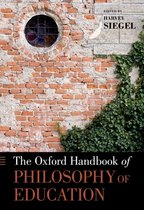International Perspectives on Early Childhood Education and Development- Developmental Education for Young Children Concept, Practice and Implementation
Afbeeldingen
Sla de afbeeldingen overArtikel vergelijken
- Engels
- Hardcover
- 9789400746169
- 17 juni 2012
- 302 pagina's
Samenvatting
Developmental Education is an approach to education in school that aims at promoting children’s cultural development and their abilities to participate autonomously and well-informed in the cultural practices of their community. From the point of view of Cultural-historical Activity theory (CHAT), a play-based curriculum has been developed over the past decades for primary school, which presents activity contexts for pupils in the classroom that create learning and teaching opportunities for helping pupils with appropriating cultural knowledge, skills, and moral understandings in meaningful ways. The approach is implemented in numerous Dutch primary schools classrooms with the explicit intention to support the learning of both pupils and teachers. The book focuses especially on education of young children ( 4 – 8 years old) in primary school and presents the underpinning concepts of this approach, and chapters on examples of good practices in a variety of subject matter areas, such as literacy (vocabulary acquisition, reading, writing), mathematics, and arts. Successful implementation of Developmental Education in the classroom strongly depends on dynamic assessment and continuous observations of young pupils’ development. Strategies for implementation of both the teaching practices and assessment strategies are discussed in detail in the book.
Developmental Education is an approach to education in school that aims at promoting children’s cultural development and their abilities to participate autonomously and well-informed in the cultural practices of their community. From the point of view of Cultural-historical Activity theory (CHAT), a play-based curriculum has been developed over the past decades for primary school, which presents activity contexts for pupils in the classroom that create learning and teaching opportunities for helping pupils with appropriating cultural knowledge, skills, and moral understandings in meaningful ways. The approach is implemented in numerous Dutch primary schools classrooms with the explicit intention to support the learning of both pupils and teachers. The book focuses especially on education of young children (4 – 8 years old) in primary school and presents the underpinning concepts of this approach, and chapters on examples of good practices in a variety of subject matter areas, such as literacy (vocabulary acquisition, reading, writing), mathematics, and arts. Successful implementation of Developmental Education in the classroom strongly depends on dynamic assessment and continuous observations of young pupils’ development. Strategies for implementation of both the teaching practices and assessment strategies are discussed in detail in the book.
Productspecificaties
Inhoud
- Taal
- en
- Bindwijze
- Hardcover
- Oorspronkelijke releasedatum
- 17 juni 2012
- Aantal pagina's
- 302
Betrokkenen
- Hoofdredacteur
- Bert van Oers
- Hoofduitgeverij
- Springer
Overige kenmerken
- Editie
- 2012 ed.
- Extra groot lettertype
- Nee
- Product breedte
- 155 mm
- Product lengte
- 235 mm
- Studieboek
- Nee
- Verpakking breedte
- 155 mm
- Verpakking hoogte
- 235 mm
- Verpakking lengte
- 235 mm
- Verpakkingsgewicht
- 671 g
EAN
- EAN
- 9789400746169
Je vindt dit artikel in
- Taal
- Engels
- Boek, ebook of luisterboek?
- Boek
- Studieboek of algemeen
- Algemene boeken
Kies gewenste uitvoering
Prijsinformatie en bestellen
Rapporteer dit artikel
Je wilt melding doen van illegale inhoud over dit artikel:
- Ik wil melding doen als klant
- Ik wil melding doen als autoriteit of trusted flagger
- Ik wil melding doen als partner
- Ik wil melding doen als merkhouder
Geen klant, autoriteit, trusted flagger, merkhouder of partner? Gebruik dan onderstaande link om melding te doen.








